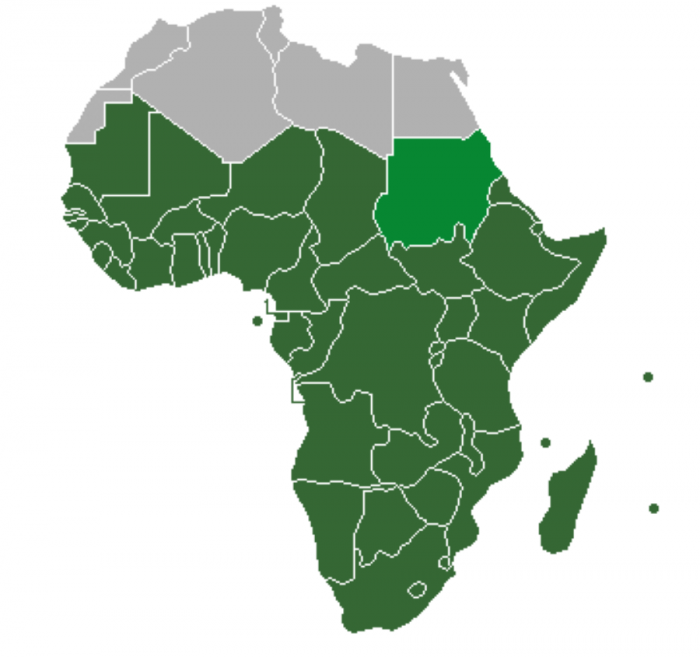By Olusoji Daomi
The geopolitical landscape of West Africa is currently witnessing a significant diplomatic standoff between the Republic of Niger and the Republic of Benin. The crux of this escalating dispute centers around an oil pipeline whose strategic and economic importance cannot be overstated. This pipeline, traversing from Niger to the port of Seme in Benin, is designed to facilitate the export of Nigerien oil. However, recent developments have exacerbated tensions, leading to a complex interplay of accusations and counteraccusations between the two neighboring states.
At the heart of this dispute lies an oil pipeline that promises to inject much-needed revenue into Niger’s economy. The pipeline terminates at Benin’s Seme port, allowing for the transportation of Nigerien oil to international markets. This infrastructure project holds the potential to significantly increase Niger’s oil output from approximately 20,000 barrels per day to an estimated 90,000 barrels per day, thus potentially quintupling its oil revenues. Given Niger’s status as one of the world’s poorest nations, such an economic boost is of paramount importance. However, the pipeline’s strategic positioning makes Niger heavily dependent on Benin for its oil exports. Should Benin choose to halt the flow of oil, Niger would find itself in a precarious position, unable to mitigate the economic fallout. This dependency has become a focal point of contention, particularly in light of recent events.
The already strained relations between Niger and Benin took a turn for the worse last month when Benin allegedly arrested five Nigerien nationals at the Seme port. These individuals were accused of illegal entry and possession of falsified documents. Benin further asserted that two of the detained individuals were agents of Niger’s ruling military junta, which has governed the country since a coup d’état in July of last year. Niger, on the other hand, categorically denied these allegations, accusing Benin of kidnapping and asserting that the detained individuals were legitimate employees of a Nigerien oil company conducting routine inspections.
To fully comprehend the current impasse, one must delve into the historical context that has shaped these events. The coup in Niger, which ousted President Mohamed Bazoum, sent shockwaves throughout the region. This was the sixth coup in West Africa since 2020, raising alarm among neighboring democracies, including Benin, which feared a contagion effect. Consequently, Benin supported a military intervention to reverse the coup, prompting Niger to close its border with Benin as a defensive measure. This border closure has had significant economic repercussions for Benin, a coastal nation that has historically served as a vital conduit for regional trade.
The oil pipeline in question connects Niger’s oil-rich Agadem region to the port of Seme in Benin. This infrastructure is crucial for Niger, not only due to its potential to enhance oil revenues but also because it represents a strategic asset in the nation’s economic recovery post-coup. Despite the potential benefits, the pipeline has become a leverage point for Benin, which seeks the reopening of the land border to resume normal trade relations. Niger, wary of possible military intervention, remains reluctant to acquiesce to Benin’s demands. The junta’s apprehension stems from Benin’s initial support for military intervention during the coup, leading to a continued closure of the border despite a reduction in hostilities.
Both nations are now embroiled in a complex negotiation process, attempting to navigate their way out of this impasse. Diplomatic efforts are underway, but the recent arrests have added a layer of complexity to the situation. Benin’s actions may be interpreted as a pressure tactic aimed at compelling Niger to reopen the border, thereby alleviating economic pressures on Benin while ensuring the continued flow of oil. However, such tactics are unlikely to foster a long-term resolution or ameliorate bilateral relations. The extended closure of the border would likely exacerbate existing tensions between Niger and Benin. Continued accusations and counteraccusations could lead to further diplomatic rifts, making reconciliation more challenging.
The Niger-Benin oil pipeline dispute encapsulates the intricate interplay of economic dependencies, strategic interests, and geopolitical maneuvers. While the immediate focus remains on resolving the current diplomatic row, the underlying tensions rooted in historical events and mutual distrust will require careful and sustained diplomatic engagement. The path to restoring cordial neighborly relations will necessitate a nuanced approach, recognizing the legitimate concerns and strategic imperatives of both nations. As this situation continues to evolve, it remains a distressing reminder of the delicate balance that characterizes international relations in this volatile region of West Africa.


